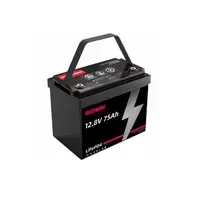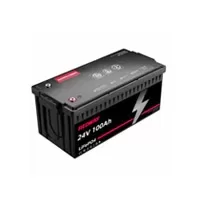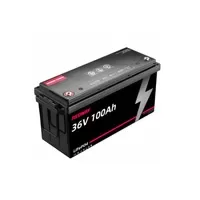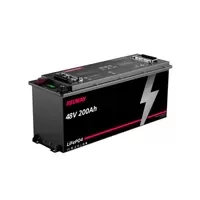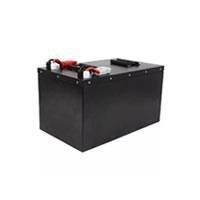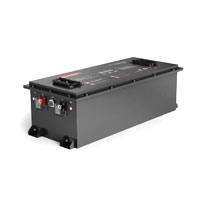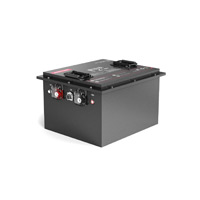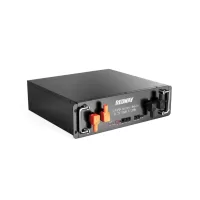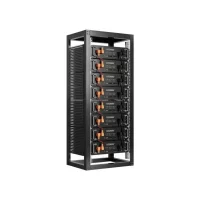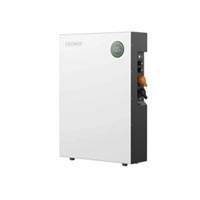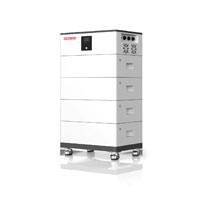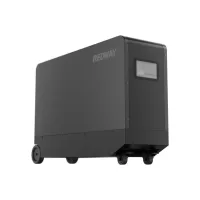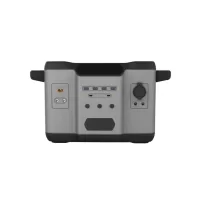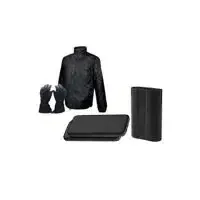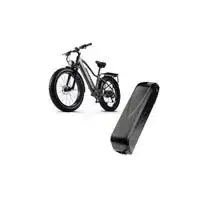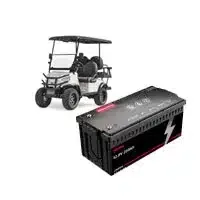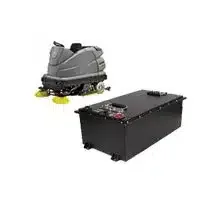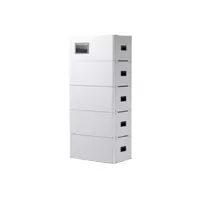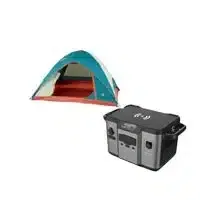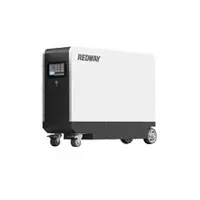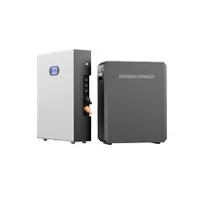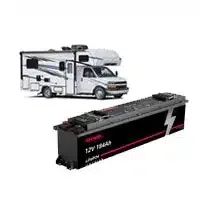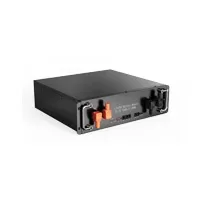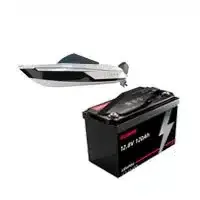(Click to Get a Quick Quote!)
Are you tired of being left in the dark when the power goes out? Worried about your perishable food spoiling during a blackout? Well, we have some electrifying news for you! In this blog post, we’re going to shed some light on an important question: Can a 200Ah battery run a fridge? Whether you’re a survivalist prepping for emergencies or simply seeking an alternative power source, keep reading to discover how long your trusty battery can keep that fridge humming with life-saving coolness. Get ready to chill with us as we dive into the world of battery capacity and powering fridges like never before! Buckle up, folks – it’s time to recharge our knowledge!
Power Consumption of a Fridge
Power Consumption of a Fridge:
When it comes to the power consumption of a fridge, there are a few factors to consider. The size and age of your fridge can have an impact on how much energy it uses. Older models tend to be less energy-efficient compared to newer ones that come with advanced technology.
Additionally, the temperature settings you choose for your fridge can also affect its power consumption. The lower the temperature setting, the more energy it will consume. So, keeping your fridge at an optimum temperature is important if you want to save on electricity bills.
Another factor to keep in mind is how often you open and close your fridge door. Every time you open it, cold air escapes and warm air enters, which means your fridge has to work harder to maintain its internal temperature.
The location of your refrigerator matters too. Placing it near heat sources like ovens or direct sunlight can cause it to use more energy as it tries to cool down constantly.
Understanding the power consumption of your fridge helps in making informed decisions about battery capacity when running it off-grid or during power outages.
Factors that Affect Battery Life
Factors that Affect Battery Life
There are several key factors that can impact the overall life and performance of a 200Ah battery running a fridge. One of the most significant factors is the temperature at which the battery operates. Extreme heat or cold can reduce its efficiency and shorten its lifespan.
Another important factor is how often and for how long the fridge is being used. If you have a large family or frequently open and close the refrigerator door, it will require more energy to maintain its cool temperatures, thus draining the battery faster.
The age of the battery also plays a role in its longevity. Over time, batteries naturally degrade and lose their capacity to hold charge effectively. Therefore, an older 200Ah battery may not run a fridge as efficiently as when it was new.
Additionally, proper maintenance and care can greatly impact battery life. Regularly checking for corrosion on terminals, ensuring proper ventilation around the battery, and avoiding overcharging or deep discharging can all help prolong its lifespan.
Using energy-efficient appliances like refrigerators with high Energy Star ratings can significantly extend your battery’s runtime by reducing power consumption.
By considering these factors and implementing best practices for maintaining both your fridge and your 200Ah battery system, you can maximize their combined lifespan while keeping things cool!
Types of 200Ah Batteries
Types of 200Ah Batteries
When it comes to powering a fridge, having the right battery is crucial. There are different types of batteries available in the market with varying capacities and features. Let’s take a look at some common types of 200Ah batteries that can be used to run a fridge.
1. Lead-Acid Batteries: These are the traditional and most commonly used type of batteries. They are known for their reliability and affordability. Lead-acid batteries require regular maintenance, such as checking water levels, but they offer good performance for running a fridge.
2. AGM Batteries: Absorbent Glass Mat (AGM) batteries are sealed lead-acid batteries that do not require any maintenance or venting. They have superior vibration resistance and can withstand deep discharge cycles without affecting their lifespan.
3. Lithium-ion Batteries: Lithium-ion batteries are becoming increasingly popular due to their high energy density and long lifespan. They are lightweight, compact, and offer excellent performance for running appliances like fridges.
4. Gel Batteries: Gel cell batteries use silica gel electrolyte instead of liquid acid found in lead-acid batteries. They have better resistance against deep discharges and can operate in extreme temperatures without losing capacity.
5. Deep Cycle Batteries: Deep cycle batteries are designed specifically for applications where repeated deep discharging is required, such as running fridges on battery power. These batteries provide sustained power over longer periods compared to regular starting or dual-purpose marine/RV batteri
How Long Can a 200Ah Battery Run a Fridge?
One of the common questions that people have when considering using a 200Ah battery to power their fridge is how long it will actually last. The answer to this question depends on several factors, including the power consumption of your fridge and the type of battery you are using.
The power consumption of a fridge can vary depending on its size and energy efficiency rating. Generally, fridges consume anywhere from 100 to 300 watts per hour. To calculate how long your battery can run a fridge, you need to divide its capacity (in amp-hours) by the power consumption (in watts).
A 200Ah battery has a capacity of 200 amp-hours. Let’s say your fridge consumes around 150 watts per hour. In this case, dividing the battery’s capacity by the power consumption gives us approximately 1.33 hours.
However, it’s important to note that this calculation represents an ideal scenario where there are no other factors affecting the battery life. In reality, various factors such as temperature, age and condition of the battery can impact its performance.
Additionally, different types of batteries have varying discharge rates and efficiencies which affect their overall running time for appliances like fridges.
To maximize your battery life when running a fridge:
– Opt for energy-efficient models with lower power consumption
– Keep your refrigerator well-maintained and clean
– Use insulation or cold packs inside your fridge
– Consider investing in solar panels or alternative charging sources
While a 200Ah battery may be able to run a small-sized fridge for around one to two hours under optimal conditions, it is crucial to consider other factors that could potentially reduce its lifespan before making any final decisions about powering your appliance solely with batteries.
Tips for Maximizing Battery Life
Tips for Maximizing Battery Life
1. Optimize fridge settings: One of the easiest ways to extend your battery’s life is by adjusting the temperature settings on your fridge. Lowering the temperature unnecessarily can lead to increased power consumption. Find the optimal setting that keeps your food fresh without consuming excessive energy.
2. Keep it well-insulated: Proper insulation is crucial for reducing power consumption and maximizing battery life. Make sure that all seals are intact, and there are no gaps where cold air can escape or warm air can enter. This will help maintain a consistent internal temperature and reduce strain on your battery.
3. Regularly defrost: Ice buildup in fridges not only affects their cooling efficiency but also increases power consumption. Defrosting regularly ensures that ice doesn’t accumulate, allowing your fridge to run more efficiently and consume less power.
4. Limit door openings: Every time you open the fridge door, cool air escapes, resulting in increased workload for your battery as it tries to restore the desired temperature inside. Minimize unnecessary door openings by planning ahead when retrieving items or using transparent containers to quickly locate what you need.
5. Consider alternative storage options: If you have access to other means of refrigeration (such as an RV park or generator), consider transferring perishable items there during periods when conserving battery power is essential.
6.
Clean condenser coils: Dust and debris can accumulate on the condenser coils at the back of your refrigerator, hindering proper airflow and causing higher energy consumption from overworking components like fans or compressors.
7.
Use efficient lighting: Replace any incandescent bulbs with LED lights inside your fridge since they produce significantly less heat while providing ample illumination.
By implementing these tips into practice, you’ll be able to maximize both the lifespan of your 200Ah battery and effectively run a refrigerator while minimizing its impact on overall energy usage!
Conclusion
Conclusion:
A 200Ah battery can potentially run a fridge, depending on various factors such as the power consumption of the fridge and the type of battery being used. It is important to note that not all fridges are created equal when it comes to energy efficiency, so it’s essential to choose one that is designed for off-grid or portable use.
When considering using a 200Ah battery to power a fridge, it’s crucial to take into account factors such as temperature settings, frequency of opening and closing the door, ambient temperature, and insulation. These variables will greatly affect how long the battery can sustain the operation of your fridge.
Additionally, choosing the right type of 200Ah battery is vital. There are several options available in terms of chemistry (such as lead-acid or lithium-ion) and design (AGM or deep cycle). Each has its own advantages and disadvantages in terms of capacity, lifespan, weight, maintenance requirements, and cost. It is recommended to research thoroughly and consult with professionals before making a decision on which battery suits your specific needs best.
To maximize the runtime of your fridge using a 200Ah battery:
1. Opt for an energy-efficient model.
2. Keep freezer temperatures at -18°C (-0°F) and refrigerator temperatures between 3-4°C (37-39°F).
3. Minimize opening and closing the door frequently.
4. Ensure proper ventilation around your fridge to prevent overheating.
5. Consider adding additional insulation if necessary.
6.
Regularly monitor your battery levels using appropriate monitoring equipment.
7.
Consider investing in solar panels or other renewable energy sources for charging your batteries during daylight hours.
Remember that while a 200Ah battery may have significant capacity compared to smaller batteries commonly used for camping or boating purposes; running appliances like fridges will consume more power over time than you might expect.
Always evaluate your specific needs regarding refrigeration requirements when planning to use a 200Ah battery. By considering these factors and implementing energy


